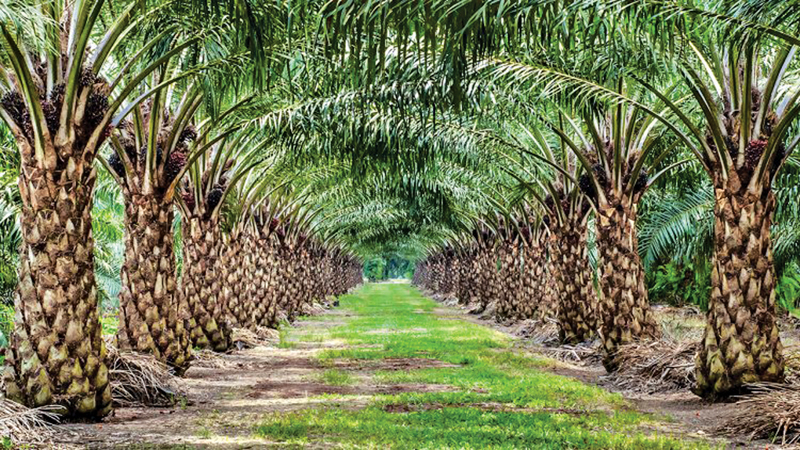 During the past few weeks or months, prices of coconuts have been rising in the domestic market. This is largely due to supply shortage in the domestic market owing to a number of factors. Many identified animals have been behind the crop damages resulting reduction in local supplies while some argued factors such as climate change and increasing coconut exports. Export data show that coconut exports have increased by US$ 300 million during the last decade, from US$ 545 in 2014 to US$ 856 million in 2024.
During the past few weeks or months, prices of coconuts have been rising in the domestic market. This is largely due to supply shortage in the domestic market owing to a number of factors. Many identified animals have been behind the crop damages resulting reduction in local supplies while some argued factors such as climate change and increasing coconut exports. Export data show that coconut exports have increased by US$ 300 million during the last decade, from US$ 545 in 2014 to US$ 856 million in 2024.
The rising prices force authorities to divert coconut supplies to domestic consumption instead of exporting purposes. In particular, media reported that some plantation companies are requested to supply their products to the domestic market at a specific price to decelerate rising prices. In addition, limited imports were allowed to cushion the industrial demand in the short-run.
Rising demand for palm oil
Rising coconut price and its implications on consumer welfare, coconut exports and imports largely centered on coconut industry itself although the country has potentials to develop an alternative solution to support both consumers, coconut exports, and the country’s import bill through promoting local palm oil industry.
In 2020, Sri Lanka spent approximately Rs. 37 billion to meet 83% of its edible oil demand, primarily through imports. During the past decade, the government initiated oil palm cultivation on 20,000 hectares of unproductive land as an import substitution strategy. This initiative aimed to reduce reliance on imported palm oil and stimulate the domestic economy. By 2019, Sri Lanka produced about 164,835 metric tons of palm oil annually.
The industry includes several processing mills, such as the one operated by Watawala Plantations PLC at Nakiyadeniya, which has been in operation since 1980. With increasing demand for edible oils, biofuels, and cosmetics, Sri Lanka can tap into this market. In addition, palm oil offers a lucrative export opportunity as it is used not only in cooking but also in processed foods, detergents, and personal care products.
Import substitution
Globally, palm oil has become one of the most consumed vegetable oils due to its versatility, lower production costs, and high yield per hectare compared to other oils.
By cultivating palm oil domestically, Sri Lanka could significantly reduce this import dependency. Palm oil is the most commonly used edible oil globally, and increasing its domestic production would replace imports, improving the trade balance and enhancing the country’s food security.
In 2022, Sri Lanka imported around $26.3 million worth of palm oil, making import substitution a highly beneficial economic move. Palm oil is a cost-effective vegetable oil compared to others, such as coconut oil, soybean oil, and sunflower oil. Its higher yield per hectare results in lower production costs, making it more affordable for consumers. This is especially important for Sri Lanka, where edible oil prices have fluctuated due to international price hikes.
Rural development
Exporting palm oil would help Sri Lanka diversify its agricultural exports and bolster the country’s economy.One of the primary benefits of expanding the palm oil industry is the creation of jobs. Palm oil cultivation, processing, and distribution require a workforce in large numbers, ranging from plantation workers to technicians in processing plants.
Given that in Sri Lanka agriculture forms the backbone of rural livelihoods, the palm oil industry could play a significant role in uplifting rural communities and alleviating poverty by creating direct and indirect employment opportunities.
Land productivity
Palm oil cultivation offers higher yields per hectare compared to other vegetable oils, such as coconut or sunflower, making it an efficient crop in terms of land use. For instance, while a hectare of coconut plantation yields approximately 2,000-2,500 kilograms of copra (which is used to make coconut oil), a hectare of oil palm plantation can produce around 3,500-4,000 kilograms of crude palm oil annually.
Sustainable approach
While concerns over sustainability are often raised with respect to palm oil, if cultivated using modern, sustainable practices, palm oil can offer environmental benefits compared to other forms of agriculture. Sri Lanka has the opportunity to implement rigorous sustainability standards from the outset, ensuring that palm oil production does not contribute to deforestation or loss of biodiversity. To mitigate these environmental concerns, Sri Lanka would need to implement robust environmental safeguards and enforce stringent regulations to prevent unsustainable land use practices. The government would have to take proactive measures to ensure that the expansion of palm oil plantations does not compromise the country’s rich biodiversity.
Promoting the palm oil industry as an import substitution strategy offers several significant advantages for Sri Lanka. It would help reduce dependency on costly edible oil imports, create jobs and economic opportunities, stabilise oil prices, and diversify agriculture. With proper planning and investment in sustainable practices, Sri Lanka can develop a competitive and environmentally responsible palm oil industry that benefits both the economy and society.
As global demand for palm oil continues to rise, Sri Lanka has the opportunity to become a key player in the market, all while securing greater food security and economic resilience for its people. In 2021, the Sri Lankan government banned oil palm cultivation due to environmental concerns, including soil erosion and biodiversity loss. This policy shift has impacted the industry, leading to discussions about balancing economic benefits with environmental sustainability.
It is imperative that the new government urgently pay attention to this policy stance and formulate a comprehensive policy framework for promoting palm oil industry in a sustainable manner which has huge potentials in creating job opportunities, improving land productivity, supporting coconut industry, and saving much needed foreign exchange to the dollar-strapped economy.









